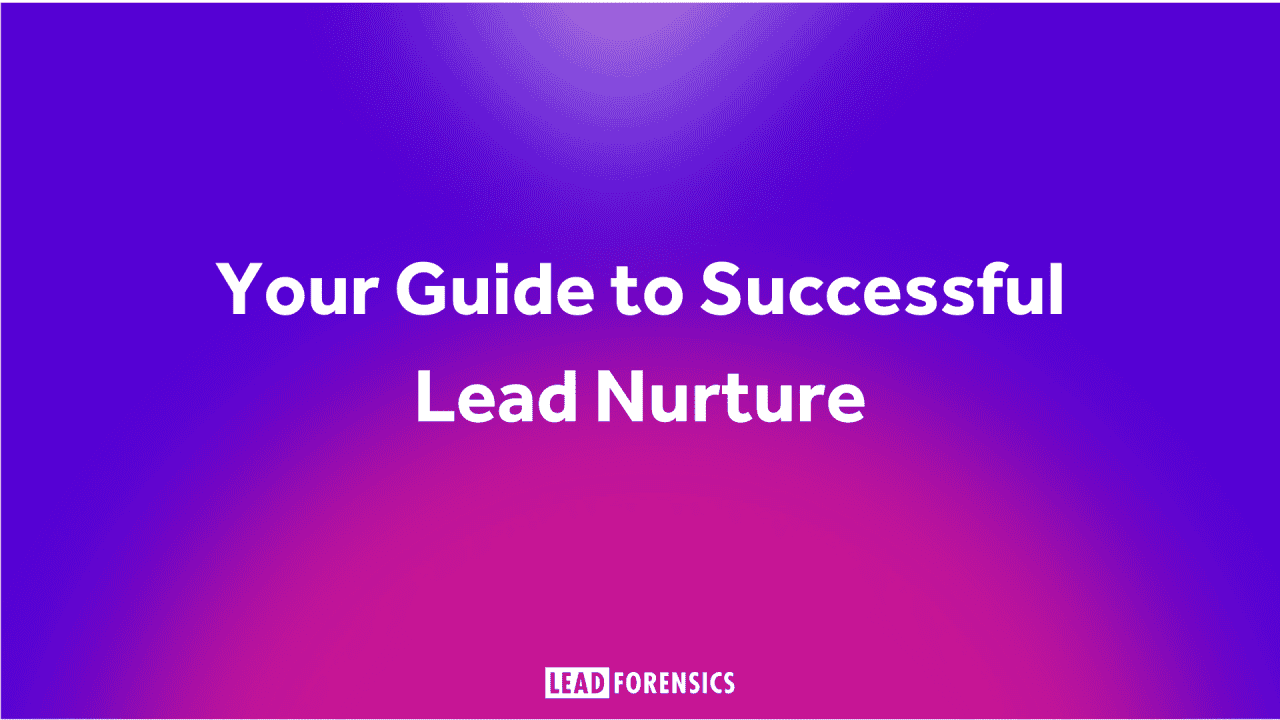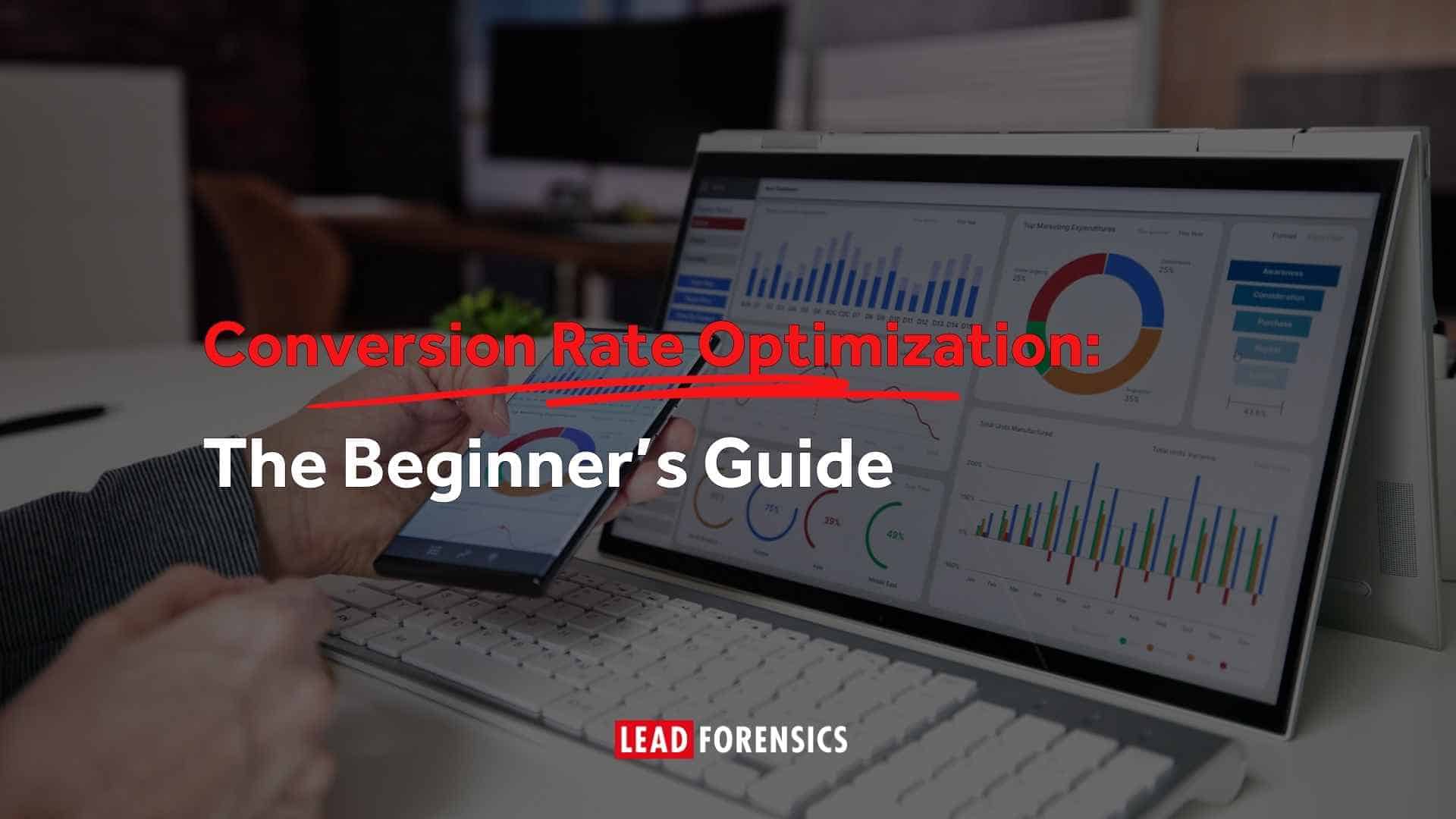There is no set way to conduct this varied process; both sales and marketing teams can employ several nurturing methods to revolutionize their approach to business success. The key to bountiful lead nurture lies in ensuring each prospect gains an individual buyer journey, perfectly suiting their business requirements and product needs. Discover popular methods for curating an effective lead nurturing strategy, driving exceptional business results.
1) Multi-channel lead nurture
When outlining a lead nurture process, many businesses fall into the trap of continually relying on a singular communication channel. Even if you’re sharing valuable nurturing content or exciting communications tailored to the lead’s business pain points, if you continue to contact a lead through just one medium, your prospects will soon get bored. Lead nurture is about more than just contacting leads, it’s about helping them discover the value and authority of your brand and product.

The most effective lead nurture reaches out to a potential buyer at least ten times during their purchasing journey, across a collection of differing channels. Email, telecommunication, and social media remain the most popular, but there’s plenty more to choose from.
Depending on the potential value of each sale and your specific processes, embracing face-to-face meetings, event networking, and direct mail can also be highly effective (though more expensive to regularly conduct).
As each lead is different, your team may need to adapt and bend to meet the needs of each opportunity. Some prospects may lean towards a single channel, such as telecommunication, and enjoy the use of follow-up emails alongside. Others may be highly active on social media platforms such as LinkedIn or Twitter and enjoy digesting content through these multiple mediums

Ensure your team understands how they can effectively present themselves and your brand across a collection of channels, so your lead nurture doesn’t rely too heavily on one form of communication. Help them learn how to identify prominent channels and seamlessly incorporate them into the buyer’s brand interactions without feeling forced or bombarded.
2) Personalization
Lead nurturing heavily influences sales success by establishing a strong relationship of trust between your prospects and your brand. One of the best ways to build this important and influential bond is through highly personalized communications and nurturing experiences. Effective nurture needs to meet the behaviors and preferences of each lead. Recent studies show going the extra mile to include details such as the prospect’s name and business name, along with direct references to their pain points and goals is essential to ensuring this lead-brand relationship yields results.

Ask how your lead nurture journeys can be perfectly tailored to each prospect. Start a library of industry-specific testimonials or content about specific pain points, enabling your team to instantly access assets relevant to their lead pool.
Providing a fully personalized nurture approach is rapidly becoming paramount to success, with 86% of decision-makers only responding to communications that use their name; be sure your team has access to a wide variety of content to fuel a targeted approach.
This method may take additional time to execute as your team gathers the insight needed to customize their nurture approach, but the results gained will outweigh the time spent. Carefully nurtured leads will spend more on your product and offer your business heightened lifetime value, thanks to highly tailored brand experience and a deeper product understanding.
3) Lead scoring
Lead scoring continues to prove a vastly beneficial process for B2B success, yet recent studies show only 21% of organizations are currently employing a lead scoring model. This approach assigns a numerical score to each lead based on the value they offer your business. The scoring model is usually fueled by a mixture of elements, depending upon your sales criteria; scores commonly encapsulate lead behaviors, such as content downloads, website visits, and email engagement, and lead qualities, including sector, size, and product use case. A high score indicates a successfully nurtured and valuable lead, highlighting those who meet important qualification criteria whilst displaying a detailed product understanding and continued brand engagement.

These models aim to help marketing and sales teams prioritize their efforts by focusing on their most important new business opportunities, whilst gaining an understanding of how much nurture is needed to produce the highest-quality leads. If a prospect has yet to obtain a high score, your team can ask how they will improve this opportunity with continued nurture.
68% of successful marketers say lead scoring is the most effective nurture tactic for boosting revenue gained, meaning the investment required to run this model (usually in automation systems) is positively returned. Studies continue to show the success of a lead scoring model, leaving us to believe that many businesses have yet to take full advantage of this exciting nurturing method.
4) Sales and marketing alignment
As lead nurturing can be used to benefit both sales and marketing teams, it makes sense for these departments to share the responsibility of managing regular prospect communication and development.
89% of organizations aligning these essential departments have seen a measurable increase in the number of high-quality opportunities gained through deepened lead nurture. Average figures show marketing and sales departments working together are 67% more likely to achieve their targets, proving the positive effects of this merger.
For these teams to work together in offering an advanced lead nurture approach, you’ll need to define at which point leads are passed from marketing to sales, outlining a service level agreement (SLA) for both teams to abide by. Ensuring all data relevant to the lead is effectively communicated whilst understanding the approaches, channels and touch-points both teams aim to employ is essential to a successful alignment for improved lead nurture.
It’s additionally important to ensure each team can be held accountable for their actions. Set up a detailed pipeline reporting system, tracking lead progress or nurture scores from the first contact to the final purchase; this enables easy identification of struggling areas, so your team can pinpoint and improve the exact nurture process failing to deliver.
5) Responsive follow-up communications
Responsive follow-up communications are essential to a successful lead nurture approach, helping your team guide prospects closer to the sale and influence important purchasing decisions. If a lead downloads a content asset surrounding a specific pain point, your team would do well to make contact by referencing the download, recommending another, and addressing the pain point in question. These follow-ups can be a gold mine, offering leads the final piece of information they need to move onto the next step of their buyer journey or become a client, yet many businesses currently struggle to make these responsive communications in a timely manner.
Timing is everything; it’s been discovered that the average response time for B2B lead follow-up communication is a staggering 42 hours. After so much time has passed, how can your brand and product still be front of mind for a busy decision-maker?

Ensure your team has the ability to identify online lead behavior and make speedy follow-up communication via phone, email, or social media. Whether you choose to employ an automated workflow that instantly sends pre-constructed messages to those displaying certain behaviors or use a tool like Lead Forensics to track the lead activity on your website in real-time, making fast and fully tailored follow-up communications ensures your lead nurture strategy produces exceptional results.
With Lead Forensics, your team can identify the businesses visiting your website whilst gaining contact details for key decision-makers alongside a detailed breakdown of their online behavior. With in-built lead manager functions and real-time visitor alerts, your team can discover an advanced approach to lead nurturefuelling your sales pipeline with high-quality opportunities, looking for a product like yours.
Find out more- book your free demo today!








